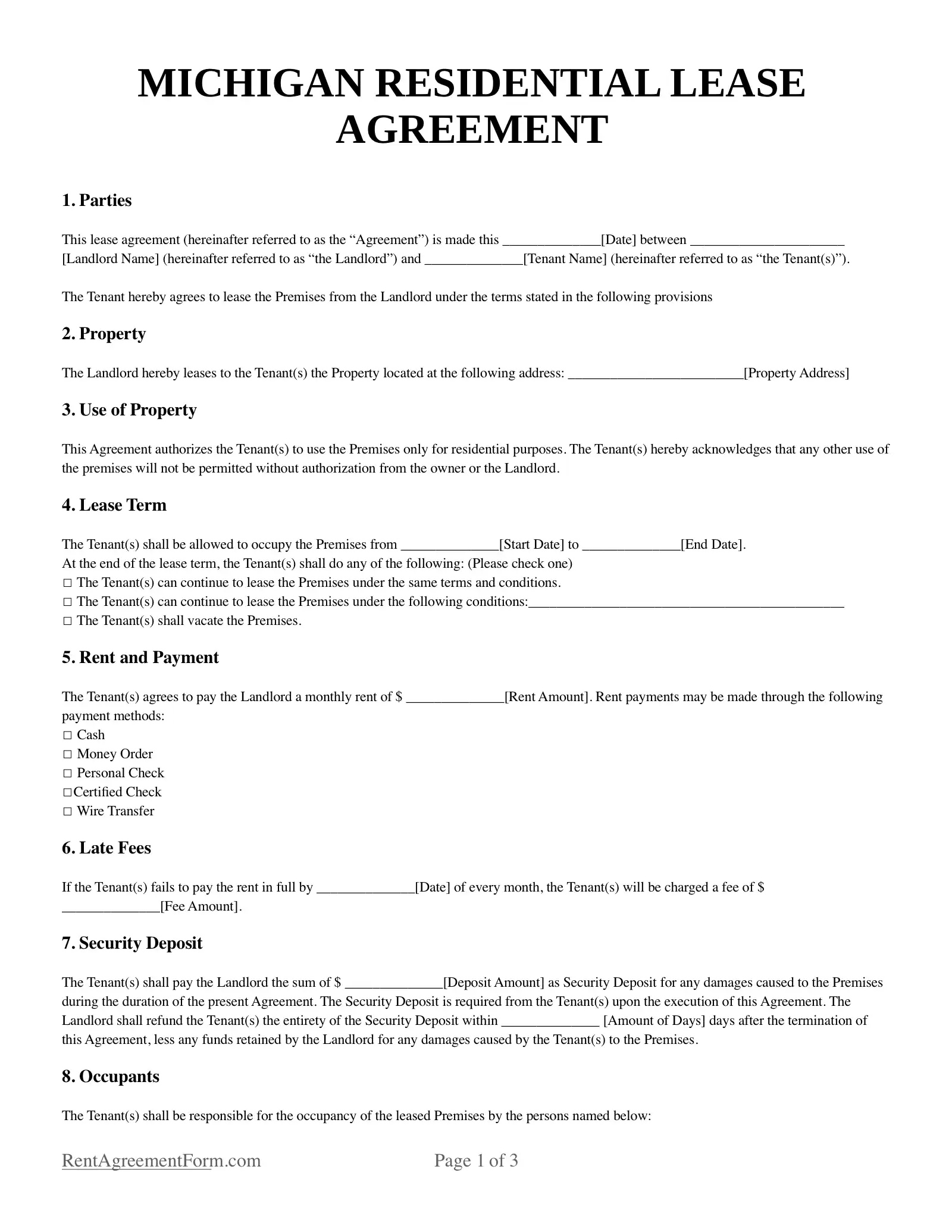Michigan Residential Lease Agreement Form
A Michigan Residential Lease Agreement Form is a legal document that a property owner or landlord and a potential tenant must sign. It is a contract that details the arrangement between the landlord and the tenant. The landlord agrees to lease their residential property, such as a house or an apartment. Meanwhile, the tenant can occupy the property and pays rent every month.
The standard template includes a provision that the occupant will use the property strictly as a residential dwelling. Usually, the contract will also include a list of all the people expected to stay in the residence aside from the legally recognized tenant.
The contract will also enumerate what the tenant cannot do during occupancy, which may include deliberately incurring damage to the property, causing a disturbance, and in some cases, growing marijuana. It will also detail the responsibilities of both parties: the tenant should pay rent on time while the landlord should provide repair services when necessary, for instance.
Most landlords will also require the tenant to accomplish a rental application before signing the lease agreement form. Furthermore, both parties are expected to abide by Michigan laws on tenancy, such as the Truth in Renting Act passed in 1978.

Required Disclosures
Tenants are protected under the Fair Housing Act. However, not everybody is well-versed with the law. This is why there are required landlord disclosures, which may differ from state to state.
Here are some required landlord disclosures in Michigan:
- Truth in Renting Act - Passed in 1978, this act aims to regulate residential leases. It prohibits certain clauses or provisions in the contract, like waiving the landlord’s liability from negligence and other similar arrangements that are not favorable to the tenants (MI Comp L §554.631 - 554.641).
- Domestic violence victims - Under Michigan law, the lease or rental agreement should include a disclosure that a tenant who has a “reasonable apprehension of present danger” can seek release from rental obligation. The danger refers to stalking, sexual assault, and domestic violence (MI Comp 554.601b).
Rent Grace Period
There is no law that governs late fees or grace periods in Michigan. However, the landlord can charge the tenant for late payments under the residential lease agreement. The charge has to be reasonable, though.
One way for landlords to ensure that the tenant has the capacity to pay monthly rent on time is by conducting thorough screening and financial background checks.
Security Deposit Laws
Landlords are allowed to charge a security deposit in Michigan according to local laws. However, they should not charge the tenant more than one and a half months’ worth of rent as a security deposit. Moreover, any refundable fee collected by the landlord before the tenant occupies the property will be considered part of the security deposit (MI Comp L § 554.602).
Some landlords require tenants to pay the last month’s rent in advance. The advanced rent will be considered part of the security deposit in such cases.
When the tenant moves out, the landlord has 30 days to return the security deposit or the balance of the security deposit in case part of it was used to repair any damage to the property. The money can be returned through a deposit or money order.
If the tenant disagrees with the list of repairs charged under the security deposit, they have seven days to settle with the landlord.
Helpful Resources
To know more about renting residential properties in Michigan, you can check the following: